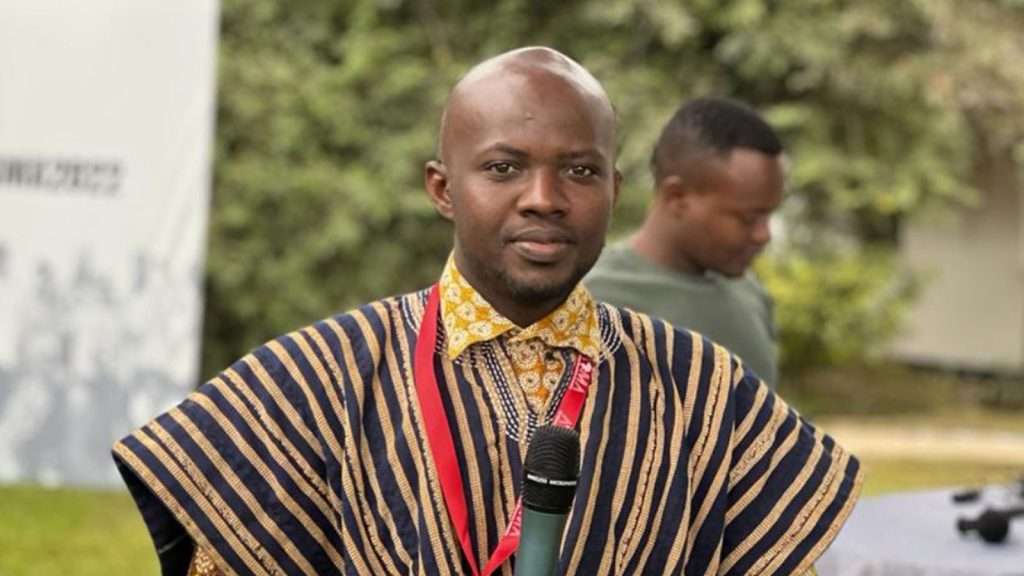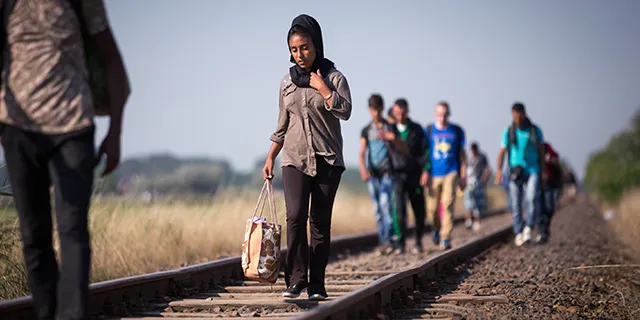As Europe grapples with rising migration, the political landscape is tilting to the right. Italy is exploring the outsourcing of asylum procedures to third countries, the Netherlands is drafting stringent new immigration laws, and Austria’s anti-migrant Freedom Party has been tasked with forming a government.
These developments are part of a broader trend that reflects growing concerns about immigration across the continent.
With Germany’s elections on the horizon, immigration has emerged as a critical issue, dominating political discourse. The debate is fueled by misinformation and disinformation spreading on social media, intensifying the polarization around both legal and irregular migration.
Amid the heated discussions, few narratives delve into the root causes of migration or consider the perspectives of those compelled to leave their homes. Hardi Yakubu, a representative of the pan-African activism movement Africans Rising, stated that migrants are among the most disenfranchised and misunderstood groups globally.
“Politicians are making calculations about migration policy and elections based on what their message should be about protecting borders,” Yakubu noted. He criticized the narrow focus of political campaigns that pander to certain voter bases without addressing the broader realities of migration.
Yakubu emphasized the need to shift the conversation from a Western-centric view to include the “African perspective.” He pointed out that the majority of African migrants — about 80%, according to the UN — seek opportunities within the continent rather than overseas. However, this significant aspect of migration is often overlooked in European debates.

Economic Contributions and Misconceptions
The data revealed that African migrants primarily move to neighboring countries or economic hubs like South Africa, which offer better opportunities. However, this intra-continental migration is frequently excluded from European discussions, which, Yakubu argued, victimizes migrants and exacerbates xenophobia.
In South Africa, for instance, the influx of Zimbabwean migrants has triggered xenophobic tensions. Despite these challenges, Zimbabwean migrants often take on menial jobs or fill gaps in the informal economy, such as running small shops.
According to a report by the OECD Development Centre and the International Labour Organization (ILO), immigrants contribute significantly to South Africa’s GDP, with estimates suggesting a 5% increase annually. Yakubu argued that destination countries should recognize and value these contributions while considering the potential benefits migrants could bring to their home countries.
Balancing Migration and Development
Yakubu advocates for policies that encourage people to stay in their home communities and contribute to local development. He warned that mass migration can lead to the stagnation of entire nations, as observed in the case of Zimbabweans moving to South Africa.
The ILO reported that nearly 25% of workers in Europe now have a foreign background, compared to less than 5% globally. This trend indicates a significant loss of potential workforce and social contributions in the migrants’ countries of origin.
Despite the challenges, many migrants strive to balance improving their lives abroad with supporting their families back home through remittances. These financial contributions play a crucial role in bolstering local economies in Africa.
Yakubu also criticized African governments for not doing enough to provide alternatives to migration. He highlighted the irony of some African nations making it easier for foreigners to move within the continent than for Africans themselves to do so.
As Europe continues to navigate its complex relationship with migration, the need for a more nuanced and inclusive dialogue becomes increasingly evident. Addressing the root causes and recognizing the multifaceted contributions of migrants are essential steps toward more balanced and effective migration policies.
READ ALSO: Moses Bliss, Wife Announce Arrival Of First Child























